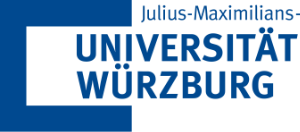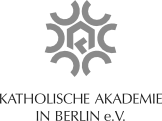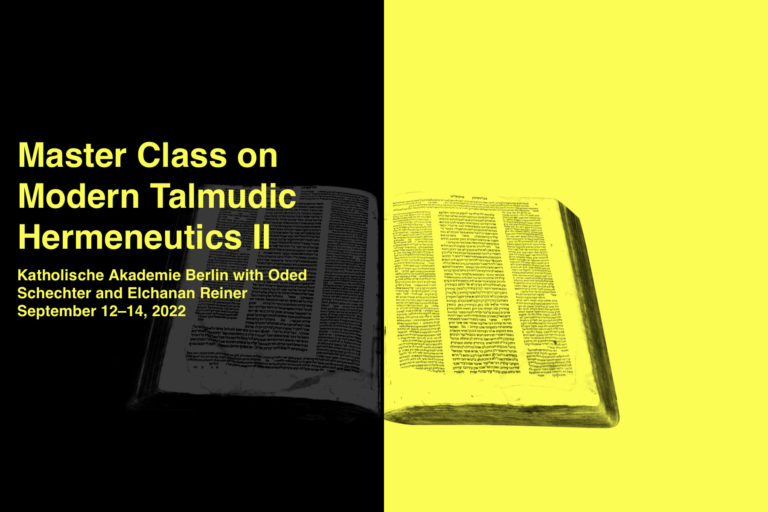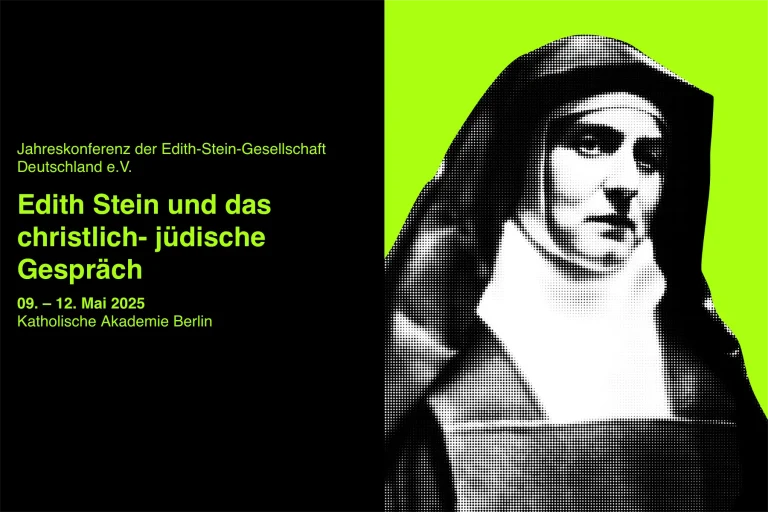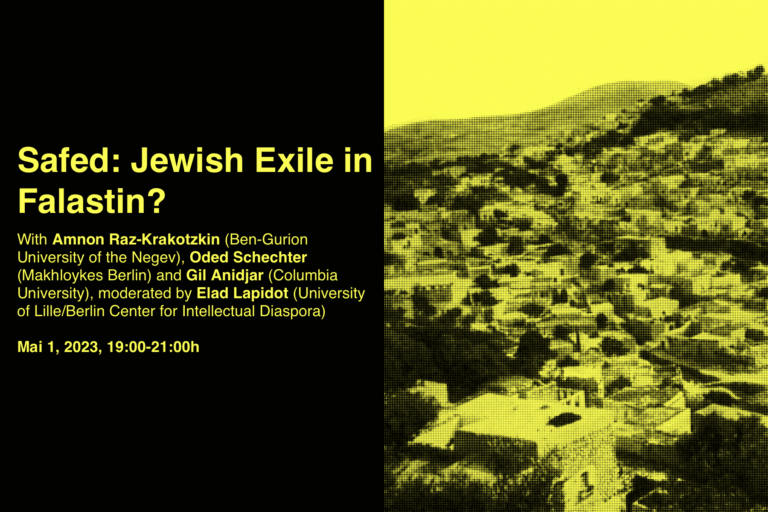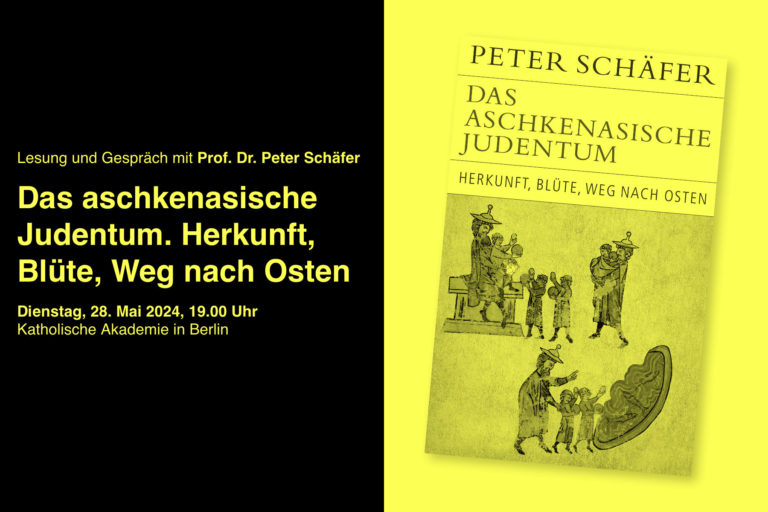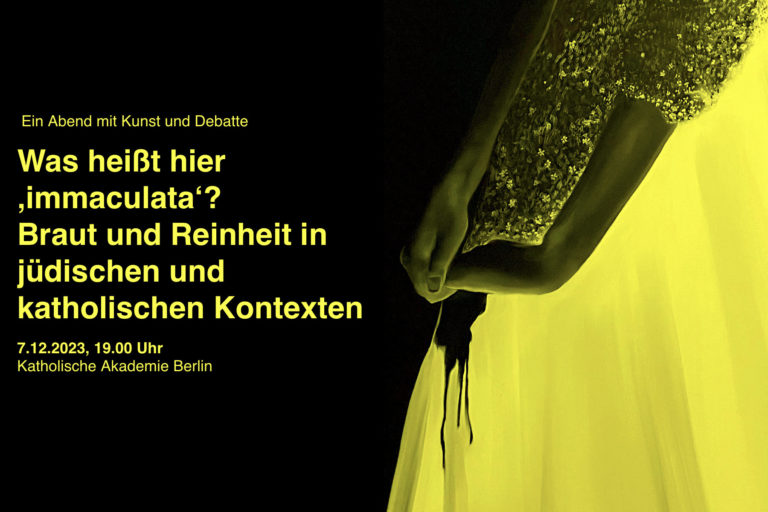Beyond Liberalism:
Commons, Constitutionalism,
and the Common Good
Workshop at the Catholic Academy of Berlin, May 31 – June 2, 2023
Abb: Stiftsatlas des Klosters Neuzelle, Quelle: Staatsbibliothek zu Berlin
Beyond Liberalism: Commons, Constitutionalism, and the Common Good
May 31 – June 2, 2023
Catholic Academy of Berlin, Hannoversche Str. 5, 10115 Berlin
One characteristic of the postliberal era are initiatives that converge around the common, commons and the common good – that reclaim common wealth or refocus on the common good. The spectrum ranges from attempts to insulate the common good from democratic contestation by reinterpreting human rights as expressions of natural law to initiatives and social struggles for deprivatization, the transfer of economic resources and infrastructures into common ownership and their governance as commons according to principles of commoning. In this workshop we seek to explore this renewed interest in the commons and the common good starting from practical and intellectual projects that recenter collective practices in ways of living and provisioning. We explore their roots in and connections with past collective practices, and the theoretical grounding they may find in theology, philosophy, law and more broadly the social sciences. To make sense of and to situate these projects and accompanying practices we hold to be particularly relevant democratic traditions of Catholic Social thought and their (largely unexplored) continuities and repercussions in the work of Bruno Latour, Pierre Rosanvallon, and others as well as scholarship on common good constitutionalism.
We are aware of the significant differences and potential conflicts between initiatives of commoning that can build on socialist, liberal and democratic traditions rooted in Christian social ethics and Jewish political thought on the one hand and protagonists of common good constitutionalism and their theological interlocutors that are prone to authoritarian and integralist / theocratic perceptions of political community on the other hand. Yet, instead of foregrounding such conflicts, we seek to explore shared discontents, differences and possible common ground through a focus on concrete projects and practices.
We want to map projects of the common good and commoning, their situatedness in different traditions and their grounding in social, religious and philosophical thought across three interconnected and overlapping themes and clusters of questions:
Organisation
Isabel Feichtner, University of Würzburg / THE NEW INSTITUTE
Alexandra Kemmerer, Max Planck Institute for Comparative Public Law and International Law Heidelberg
Stephan Steiner, Catholic Academy of Berlin
Livestreams on Youtube
Public Evening Debate
The Commonsverse as a Parallel Polis: Opportunities and Challenges
May 31, 6pm
Public Evening Debate
Non Nova, Sed Nove: The Common Good in Constitutional Law
June 1, 7pm
In collaboration with:
Max Planck Institute for Comparative Public Law and International Law Heidelberg
Law Department at the University of Würzburg
THE NEW INSTITUTE
COMMUNIO: Ways of life, styles of life.
Communes and collectives, experiments in monastic and self-subsistent ways of life raise questions as to how they relate to broader society; how they understand their collectivity, its underlying values and principles such as subsidiarity and solidarity; the rules that govern relations amongst members, with the outside and the more-than human world; whether they aim to be seeds of a wider-ranging social transformations or are an expression of withdrawal from society. What are their collectively shared values or the shared commitments that constitute the ground of mutual recognition as members of this community? What are the rules/mechanisms of inclusion and exclusion as well as conflict resolution? How are human collectives embedded in their non-human environment (GAIA), and what are the consequences of such embeddedness?
LABOR: Modes of production.
Projects of commoning as well as Common Good Constitutionalism are critical of political economy. While Common Good Constitutionalism appears to entrust a strong government with protecting the weak from the life-destroying excesses of capitalism, projects of commoning center on common ownership, aim at deprivatization, socialization and democratization. Both converge in their claim for greater autonomy of communities and collectives based on solidarity. Open questions concern the pathways to socialization, the organizational form of autonomous collectives, their governance as well as their relation with the surrounding market economy and protection from capitalist incursions and colonizations. Other projects such as, e.g. in Christian monasticism, the reinvention of a “grange cistercienne pour le XXIème siècle” or the transformation of a large convent into a local community space, are less explicit in their critique of political economy. How do they perceive of their economic basis and problematize their integration in a capitalist political economy?
CONSTITUTIO: Legal Constitutions of the Common(s) / Common Good Constitutionalism.
What is the law of the commons? What are the rules that members of commons associations live by? How do commons associations or collectives that strive for the common good perceive of rules and of the role of law in their internal governance and “external relations”? What is their understanding of individual rights and freedom? Do they – as proposed in scholarship on commoning — perceive of law itself as a commons that should be vernacular, decolonial and emerge from below? Or do they – more in line with Common Good Constitutionalism — see themselves as units of a larger hierarchically organized (state) order that is governed by a constitution from which their autonomy is derived according to the principle of subsidiarity? Can multidimensional liberal traditions and approaches recognising the relevance of (religious) values and virtues be considered as potentially mediating and connecting dynamics in ever more polarising social and cultural struggles about “the common”? What is the contribution of (sacred) natural law traditions? Can solidarity, subsidiarity and dignity serve as shared and common concepts and principles, allowing for and enabling enhanced (democratic) self-determination and participation?
Participants
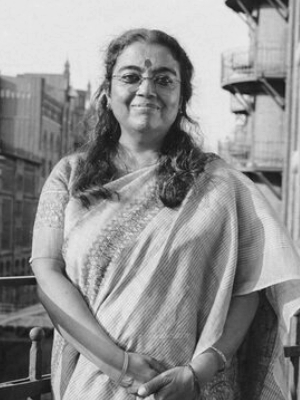
Madhulika Banerjee – I am currently a Fellow at The New Institute in Hamburg, on leave (until July 2023) from teaching Political Science at the Department of Political Science, University of Delhi, where I have been since 2004. Prior to that I taught in undergraduate colleges since 1985. My doctoral thesis was on “Power, Culture, Medicine: Ayurvedic Pharmaceuticals in India”, from the same Department, awarded in the year 1996 and a significantly revised and expanded version of this was published in 2009 as ‘Power, Knowledge, Medicine: Ayurvedic Pharmaceuticals at Home and in the World’, by Orient Blackswan in India. I have written extensively on Ayurveda since then, both in peer-reviewed journals and the popular media.
My current focus is on how understanding the engagement of ‘traditional knowledges’ with modernity offers a fresh framework of praxis for responses to the climate crisis. My most recent publication that laid the ground for this was ‘Politics of Knowledge in Development: An Analytical Frame’, Studies in Indian Politics, Vol 9, pp.1-13, 2021.
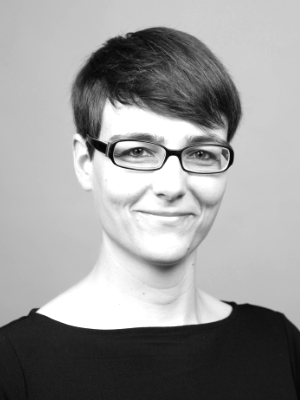
Bettina Barthel received her PhD (Dr. rer. pol.) from the University of Kassel, Department for Development and Postcolonial Studies. Since 2018 she works as a Research Associate at the Center for Interdisciplinary Women’s and Gender Studies (ZIFG) at TU Berlin and is a member of the DFG research group Law – Gender – Collectivity. She researches and teaches on urban commons, commons and law, solidarity economies and (collective) subjectivities.
Publications:
Barthel, B. (2022): »Von der Nische in den Markt.« Zur diskursiven Mainstreamisierung gemeinschaftlichen Wohnens. In: M. Seifert & T. Schindler (Eds.), Wohnen jenseits der Normen (Vol. 56/2021, pp. 205-216). Kromsdorf: Jonas Verlag.
Barthel, B. (2020): Legal hacking und seine praktischen Dimensionen am Beispiel des Mietshäuser Syndikats. In: juridikum – zeitschrift für kritik | recht | gesellschaft (3/2020), 366-375.
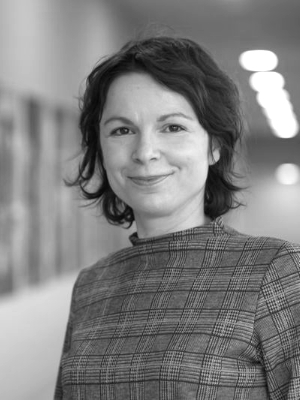
Marija Bartl is a Professor of Transnational Private Law at the Amsterdam Law School and the Director of the Amsterdam Centre for Transformative Private Law. She is also a managing editor of the European Law Open and, currently, a Fernand Braudel Fellow at the European University Institute. Marija teaches several courses, including ‘Advanced Private Law’’ and ‘Law as a Change-Maker’.
At present, Marija is working on two research projects. Her ERC funded project ‘Law as a vehicle for social change: Mainstreaming Non-Extractive Economic Practices (N-EXTLAW)’ adopts a broad perspective on private law as a vehicle of social change, exploring the ways in which rethinking (private) law’s role in facilitating and mainstreaming ‘non-extractive economic practices’ may open up possibilities for a wider socio-ecological transformation. N-EXTLAW draws and builds on the ideas stemming from Marija’s book project ‘Shared Prosperity: Towards a New Imaginary of Political Economy in the EU’ (on contract with CUP). In the book project, Marija asks how can we interpret the transformation that the EU is currently undergoing, under the influence of several ongoing crises. She argues that the EU has hesitantly embarked on a (reversable) path towards ‘shared prosperity’, where collective action and solidarity – rather than ‘markets’ and private gain – can be seen as the main drivers of progress and prosperity. Yet this attempt to deliver shared prosperity is a race against the clock: is the EU doing enough to deliver shared prosperity before nativist forces become dominant in Europe?
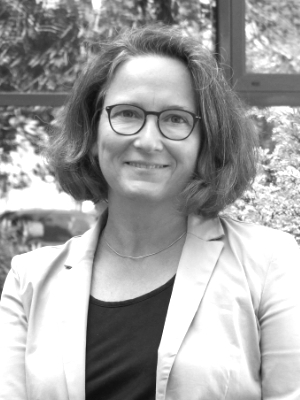
Michelle Becka is professor for Christian Social Ethics at the Faculty of Theology at the university of Wuerzburg, Germany. She received her doctorate with a thesis on recognition and interculturality Tübingen and her habilitation with a thesis on ethics in the penal system. Research interests are foundations of Social Ethics, Ethics in the Penal System, Human Rights Ethics, Ethics and Migration, Interculturality and Latin American theology. She is co-editor of the international theological Journal CONCILIUM and member of the German commission of Justice and Peace.
Recent Publications:
Sexual Abuse in the Church and the Violation of Vulnerable Agency, in: Flemming, Daniel J./Keenan, James F. Keenan SJ /Zollner, Hans SJ.i (Ed.), Doing Theology and Theological Ethics in the Face of the Sexual Abuse Crisis, Vol. 3, Issue CTWEC Book Series, No. 3, 2023, Online version: https://jmt.scholasticahq.com/issue/6906
Christliche Sozialethik und der Tellerrand. Lokale Kontexte und normativer Anspruch in einer globalisierten Welt, in: Jahrbuch Christliche Sozialwissenschaften, Bd. 63 (2022),
online unter: https://www.uni-muenster.de/Ejournals/index.php/jcsw/article/view/4404/4577
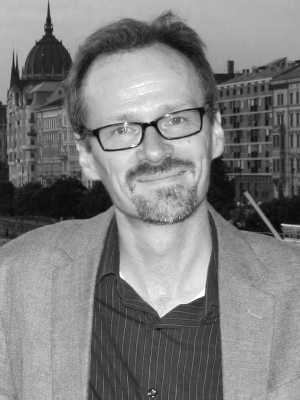
Asher D. Biemann is professor of modern Jewish thought and intellectual history at the University of Virginia. He is the author of Inventing New Beginnings: On the Idea of Renaissance in Modern Judaism (Stanford, 2009) and Dreaming ofMichelangelo: Jewish Variations on a Modern Theme (Stanford, 2012), which appeared in German as Michelangelo und die jüdische Moderne (2016). He is also the editor of the Martin Buber Reader (Palgrave, 2001), Martin Buber’sSprachphilosophische Schriften (Martin Buber Werkausgabe 6) and, together with Richard I. Cohen and Sarah E. Wobick-Segev, Spiritual Homelands: The Cultural Experience of Exile, Place and Displacement Among Jews and Others(DeGruyter, 2020). He is currently completing a book entitled Enduring Modernity: Judaism Eternal & Ephemeral.
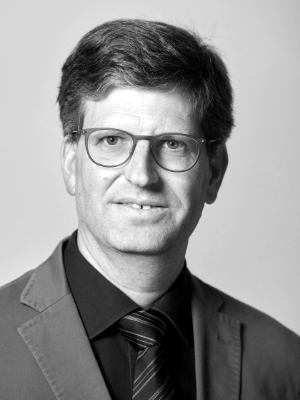
Daniel Bogner (*1972) is Chair of Moral Theology and Ethics at the University of Fribourg/Switzerland. After studying theology, philosophy and political science, he held research and teaching positions in Paris, Luxembourg, Saarbrücken and Münster. His work focuses on questions of political ethics, human rights and the relationship between religion and politics. Publications on Michel de Certeau, Carl Schmitt and Bruno Latour. Father of three children.
Publications:
Gebrochene Gegenwart. Mystik und Politik bei Michel de Certeau, Mainz 2002, 353 S.
Freiheit, Gleichheit, Religion. Orientierungen moderner Religionspolitik, Würzburg 2012, 282 S. (hrsg. mit Marianne Heimbach-Steins)
Das Recht des Politischen. Ein neuer Begriff der Menschenrechte, Bielefeld 2014.
Gott, Gaia und eine neue Gesellschaft. Theologie anders denken mit Bruno Latour, Bielefeld 2021. (hrsg. mit Michael Schüßler u. Christian Bauer)
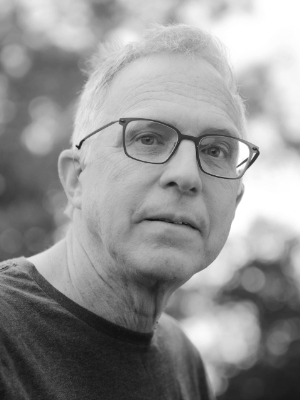
David Bollier is an author, activist, blogger and consultant who spends a lot of time exploring the commons as a new paradigm of economics, politics and culture. He has been on this trail for about twenty years, working with a variety of international and domestic partners. In 2010, he co-founded the Commons Strategies Group, a consulting project that works to promote the commons internationally. More recently, he has become Director of the Reinventing the Commons Program at the Schumacher Center for a New Economics, based in Great Barrington, Massachusetts. The book that most encapsulates his thinking on the commons is the 2014 book: „Think Like a Commoner: A Short Introduction to the Commons“. Two other fairly recent books on the commons include „The Wealth of the Commons: A World Beyond Market and State“ (September 2012, Levellers Press), co-edited with Silke Helfrich; and „Green Governance: Ecological Survival, Human Rights and the Commons“ (2013, Cambridge University Press), co-authored with the late Professor Burns H. Weston.
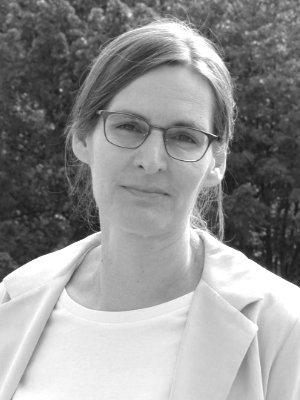
Christine Büchner, Prof. Dr., Goethe-Universität Frankfurt: Studies in Catholic Theology, German Studies and Latin Philology; Dr. phil. in Catholic Theology; Eberhard-Karls-Universität Tübingen: License degree in theology; Postdoctoral dissertation (Habilitation) in Dogmatics and Ecumenical Theology; 2014–2020 Professor of Catholic Theology, Universität Hamburg; 2018-2020 Deputy Director of the Academy of World Religions, Universität Hamburg; since 2020 Chair of Dogmatics, Julius-Maximilians-Universität.
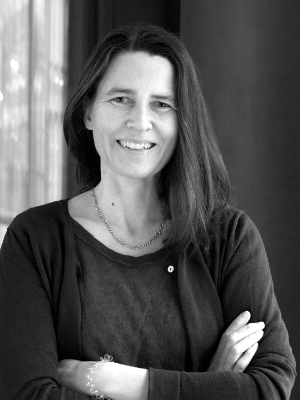
Isabel Feichtner is Professor of Public Law and International Economic Law at the University of Würzburg and fellow at The New Institute with a project on land commons. Her research interests cover the distributive effects of law, the democratization of society, and the law of the commons and commoning. She explores how institutional experiments, e.g. the redesign of money or Commons Public Partnerships, can support democratic social-ecological transformation. She is a member of the Berlin expert commission on the socialization of rental properties. Recent publications include the edited volumes “Constitutions of Value. Law, Governance, and Political Ecologies” (with Geoff Gordon) and “(Post)Koloniale Rechtswissenschaft. Geschichte und Gegenwart des Kolonialismus in der deutschen Rechtswissenschaft“ (with Philipp Dann and Jochen von Bernstorff).
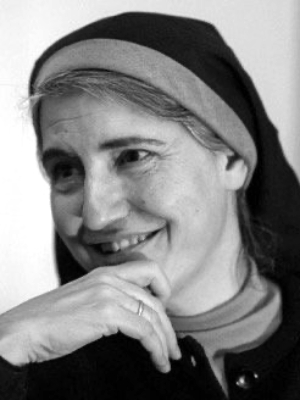
Teresa Forcades is a physician, theologian and Benedictine nun in the mountain monastery of Sant Benet de Montserrat (Catalonien, Spain). Master of Divinity, doctor in Medicine and doctor in Sacred Theology. She has authored several publications in english, spanish, catalan and italian. Since 2011 she teaches at her monastery and on-line courses on theological and medical topics; she has also been professor at the Humboldt University in Berlin (2013-14) and at the Universidad Iberoamericana de Ciudad de México (2018-19). Since 2017 Forcades is director of the journal of Christian critical thought Iglesia Viva (www.iviva.org) and since 2020 director of the Sinclètica Monastic School and coordinator of the international program Knowledge, Arts and Interiority (www.sincletica.cat).
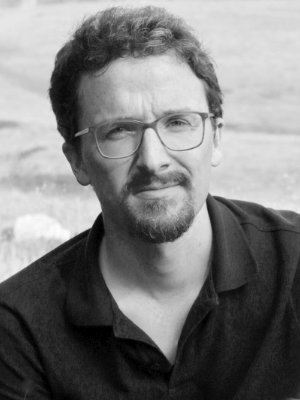
Bruno Godefroy holds a doctorate in philosophy and political science. His research focuses on political philosophy, constitutional theory, and the history of political ideas. His areas of specialization include Karl Löwith’s work and legacy. Publications: La Fin du sens de l’histoire. Eric Voegelin, Karl Löwith et la temporalité du politique (Classiques Garnier, Paris, 2021) ; “Karl Löwith’s Historicization of Historicism,” in Historicism: A Travelling Concept (Bloomsbury, London, 2021).
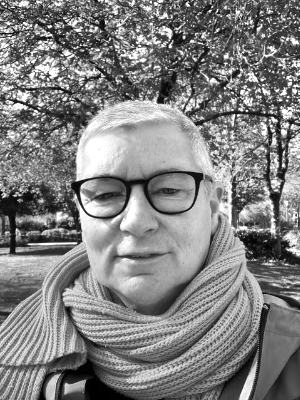
Sabine_ Hark, Professor for Gender Studies and Director of the Center for Interdisciplinary Women’s and Gender Studies at TU Berlin. Principal Investigator DFG-Research Consortium “Law – Gender – Collectivity“, Project: Within and Beyond Law? Feminist Perspectives on Urban and Housing Commons.
Recent Publication:
Gemeinschaft der Ungewählten. Umrisse eines politischen Ethos der Kohabitation, Berlin 2021 (Suhrkamp)

Jannika Jahn is a postdoctoral fellow at the Max Planck Institute for Comparative Public Law and International Law in Heidelberg. She is an Associate Editor at Verfassungsblog covering public international and human rights law.
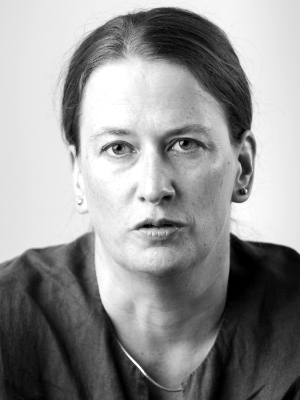
Alexandra Kemmerer is Senior Research Fellow and Academic Coordinator at the Max Planck Institute for Comparative Public Law and International Law Heidelberg, and Head of the Institute’s Berlin office, a platformfor intellectual encounters inspired by current legal scholarship. Her research focuses on international law, European public law, constitutional theory, comparative constitutional law, context(s) and histories of law, and the media theory and communicative praxis of law. Alexandra has widely published as an academic and journalist and is co-editor of nine books, inter alia Human Dignity in Context. Explorations of a Contested Concept. Nomos/Hart 2018 (with Dieter Grimm and Christoph Möllers).
Foto Credits: MPIL / Maurice Weiss (Ostkreuz)
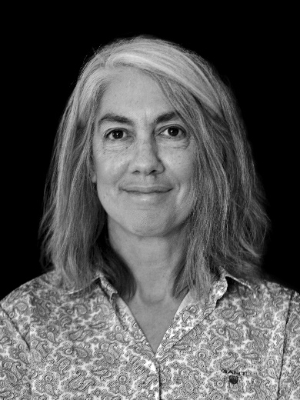
Elise Kissling, after doing philosophy and feminist theory, I worked as a journalist, learning, and writing about economic policy and financial markets in the years leading up to first the downfall of Neuer Markt and then the collapse of the housing bubble. From journalism I moved to industry, where I had the good fortune to work on and lead numerous projects at the intersection of business, environmental and social action. My passion was – and still is – designing and executing simple strategies and programs for disruptive innovation. Business-driven attempts to tackle social and environmental problems have systemic limitations. Experiencing this prompted me to begin analyzing corporate and macroeconomic framework conditions and studying alternative economics. I currently work with organizations seeking to implement alternative organizational practices and economic models.
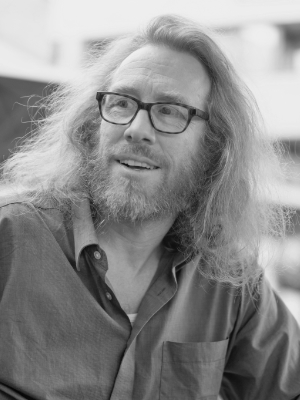
Bertram Lomfeld is Professor of Private Law, Philosophy of Law, and Sociology of Law at Freie Universität Berlin. He is a senior editor of the journal polar and founded the global network Private Law Theory, which emphasizes the constitutive social and political function of private law.
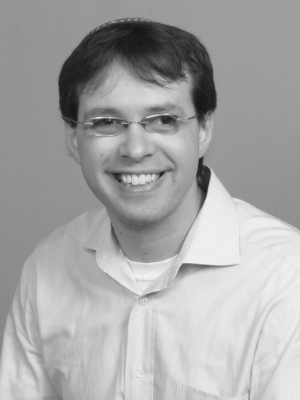
Rabbi Alex Ozar grew up in St. Louis, MO. A fourth generation Missourian on both sides, he left home to spend two blissful years studying in Israel at Yeshivat Kerem B’Yavneh and then returned stateside to attend Yeshiva University, where he received his BA, MA and Semikha. A proud Bulldog himself, Alex is now pursuing his PhD at Yale in Philosophy and Religion, with a focus on prophetic witness and the how-to’s of pursuing justice in an often-indifferent world. Alex has worked for First Things magazine, as a Tikvah Fellow, and as a gemara teacher at Bi-Cultural Day School in Stamford, CT.
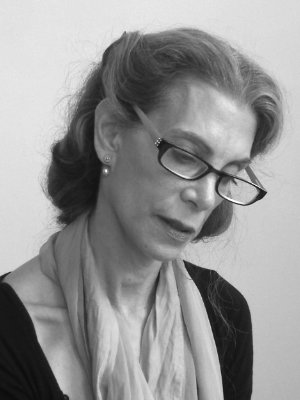
Professor Marcia Pally teaches at New York University and held the Mercator Guest Professorship in the theology department at Humboldt University-Berlin, where she is an annual guest professor. In 2019-2020 she was a Fellow at The Center for Theological Inquiry (Princeton). Her research interests are culture, religion, and politics as well as the intersection of culture and language. She is the author of several books in each area, including: „White Evangelicals and Right-wing Populism: HOW DID WE GET HERE?“ (Routledge, 2022), „From This Broken Hill I Sing to You: God, Sex, and Politics in the Work of Leonard Cohen“ (Bloomsbury Academic, 2021), „Commonwealth and Covenant: Economics, Politics, and Theologies of Relationality“ (2016), „The New Evangelicals: Expanding the Vision of the Common Good“ (2011). Prof. Pally was twice a Fellow at the Institute for Advanced Study-Berlin and spoke at the World Economic Forum in 2010. Prof. Pally is on the boards of the Berlin Institute for Public Theology and of the Telos Institute, in addition to other advisory positions.
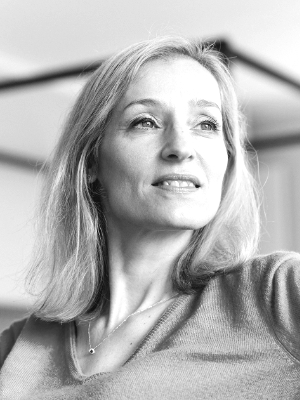
Corine Pelluchon, is specialist in moral and political philosophy and applied ethics (medical, environmental and animal) and professor at Gustave Eiffel University (in Paris region). She is currently fellow at Max Planck Institute for History of Sciences in Berlin after having been fellow at The New Institute in Hamburg in 2021-2022.
After a thesis on Leo Strauss, she developed a philosophy of corporeality which has two parts, one centered on vulnerability, the other on our habitation of the Earth which is always a cohabitation with other living beings. This philosophy of phenomenological inspiration underlines the relational dimension of the subject and articulates a philosophical anthropology with a political theory. In this work, which is part of the heritage of the Enlightenment while going beyond its anthropocentric foundations, ecology and the animal cause are never dissociable from the promotion of a new humanism.
She has written 15 books, most of which have been translated into foreign languages.
Recent publications:
Les Lumières à l’âge du vivant, Seuil, 2021 (Das Zeitalter des Lebendigen. Eine neue Philosophie der Aufklärung, WBG, 2022) ; L’espérance ou la traversée de l’impossible, Rivages, 2023 (Die Durchquerung des Unmöglichen. Hoffnung in Zeiten der Klimakatastrophe, Beck, Oktober 2023), Réparons le monde. Humains, animaux, nature, Rivages, 2020 (Verbessern wir die Welt! Sorge um Mensch, Tier, Natur, WBG, Oktober 2023).
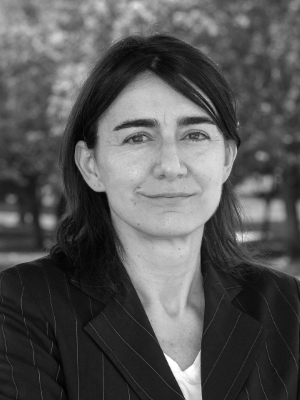
Mónica García-Salmones Rovira is the author of The Project of Positivism of International Law (Oxford University Press 2013), and The Necessity of Nature. God, Science and Money in the 17th Century English Law of Nature (Cambridge University Press, 2023). She is currently Global Law Fellow at the Alvaro d’Ors Global Law Chair (ICS, University of Navarre) and Senior Fellow at the Erik Castrén Ins9tute of Interna9onal Law, University of Helsinki.
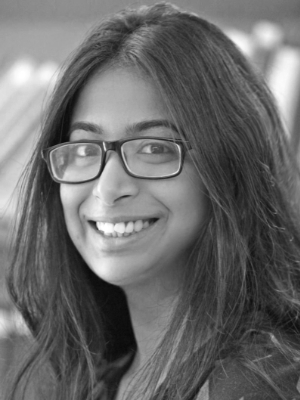
Surabhi Ranganathan is Professor of International Law at the University of Cambridge and Dy Director of the Lauterpacht Centre for International Law. Her current work traces the co-constitution of international law and the ocean from 1945 to now, unsettling what we take as the givens in relation to the spatial zones, resource allocations and functional jurisdictions effected by the law of the sea. It extends the history and critique of international law into new areas, such as ocean depths and bottoms, global commons, marine infrastructures, and techno-utopian imaginaries, and, from the underexplored vantage point of oceanic law-making, throws new light on current preoccupations of international legal histories: statehood and territory, decolonization and the new international economic order, the Cold War, race and empire, and the emergence of new legal forms and institutions. She has been invited as a Global Professor at NYU, and was Visiting Professor at the Graduate Institute, Geneva (spring 2020). She was a Visiting Fellow at the Center for History and Economics, Harvard in spring 2021, and an invited fellow at Wissenschaftskolleg, Berlin (2022-2023). Since 2021, she is a member of the Aurora Centre at the Arctic University of Norway, Tromso. Educated at NLSIU Bangalore, NYU (as a Vanderbilt Scholar), and Cambridge (as a Gates Scholar, and JC Hall Scholar at St. John’s College), Ranganathan has clerked for the Supreme Court of India, and interned with UNHCR, UNICEF, the Telecom Regulatory Authority of India, and the Central Empowered Committee for the Environment established by the Supreme Court of India. Her editorial roles include the Leiden Journal of International Law, the Cambridge Law Journal, and the Scientific Advisory Board of the European Journal of International Law.
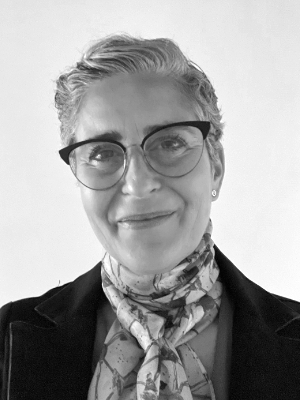
Margot Salomon is Associate Professor at LSE Law School and directs the multidisciplinary Laboratory for Advanced Research on the Global Economy at LSE Human Rights. Margot is interested in the roles and distributional effects of international law with current projects focused on the emerging field of transformative international human rights law. Recent publications address contradictions in the radical articulation of peasant rights; indigenous land rights and new uses for the legal construct of property rights outside of capital accumulation; material context and structural change in socio-economic rights adjudication; and the ‘utilities’ served by the indebted state under the regime of sovereign debt. Margot’s research draws inspiration from a variety of disciplines including political economy, critical development studies, and counter-hegemonic and 4th world approaches to international law. She is a Laureate of a Belgian European Francqui Chair, winner of an ESIL book prize (with co-authors Linarelli and Sornarajah), and is a member of the inaugural Editorial Board of LSE Press, a fully open access and innovative publishing house.
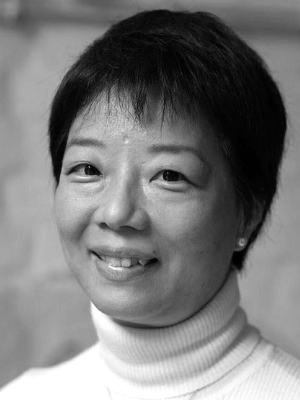
Maki Sato (Ph.D.) is interested in environmental philosophy that includes a new emerging set of skills and ideas not limited to the relationship between humans and nature but sharing of the global commons, Shintoism, AI and robotics. She is affiliated with The New Institute in Hamburg as a Fellow, concurrently holds a Fellow position at the East Asian Academy, the University of Tokyo and is a Lecturer at Rikkyo University.
Publications:
1) The Enactive and Interactive Dimensions of AI: Ingenuity and Imagination Through the Lens of Art and Music. Maki Sato, Jonathan McKinney; Artificial Life 2022; 28 (3): 310– 321. Doi: https://doi.org/10.1162/artl_a_00376
2)「「人新世」が問いかけてくるもの―新たな環境思想のための思考実験ノート―」 (Questions from Anthropocene – For A New Environmental Thoughts), 佐藤麻貴 (Maki Sato),哲学 (Philosophy),第71号,日本哲学会, (April 2020), pp.21-31.
https://www.jstage.jst.go.jp/article/philosophy/2020/71/2020_21/_article/-char/ja
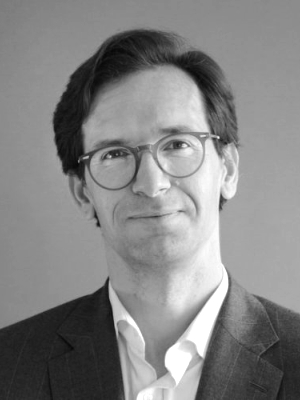
Stephan Steiner studied philosophy, theology, and literature at the universities of Innsbruck, Tübingen, and Paris. He held fellowships in Dresden, Vienna, and at the University of Chicago. Dissertation on the political philosophy of Leo Strauss at the Max Weber Center, University of Erfurt. Main interests: Pragmatism, Hermeneutics, Neo-Kantianism. Since 2015 he is head of philosophy at the Katholische Akademie Berlin, where he founded the „Berlin Center for Intellectual Diaspora“ in 2021. Father of five children.
Publications:
Weimar in Amerika. Leo Strauss’ Politische Philosophie (Schriftenreihe wissenschaftlicher Abhandlungen des Leo Baeck Instituts), Tübingen: Mohr Siebeck 2013; Hans Blumenberg/Jacob Taubes: Briefwechsel 1961 – 1981 und weitere Materialien, ed. by Herbert Kopp-Oberstebrink and Martin Treml; with the collaboration of Anja Schipke and Stephan Steiner, Berlin: Suhrkamp 2013.
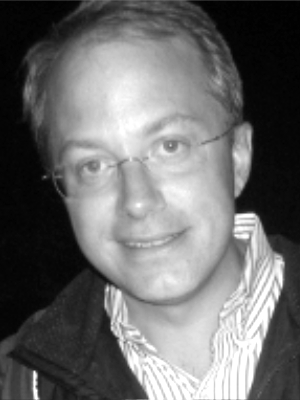
Adrian Vermeule is the Ralph S. Tyler Professor of Constitutional Law at Harvard Law School, and a member of the Council of the Administrative Conference of the United States. He is the author or co-author of 10 books, most recently Common Good Constitutionalism (Polity Books 2022).
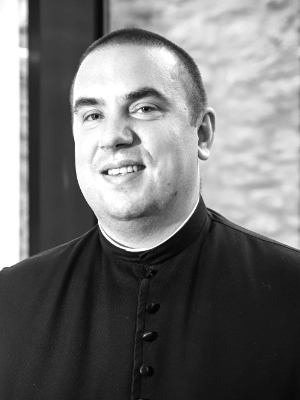
Edmund Waldstein, O.Cist. is a monk of the Cistercian Abbey of Stift Heiligenkreuz in Austria, lecturer in moral theology at the Phil.-Theol. Hochschule Benedikt XVI., the Abbey’s theological institute, guest instructor at the International Theological Institute in Trumau, Austria, and director of the János-Brenner-Haus for vocational discernment. Born in Italy and raised in the United States and Austria, he studied at Thomas Aquinas College in California, the Hochschule Benedikt XVI in Heiligenkreuz, and the University of Vienna, where he was promoted doctor of theology in 2019. His research has focused on eudemonism, the common good, Catholic Social Teaching, integralism, the theology and philosophy of nature, and theological readings of literary fiction.
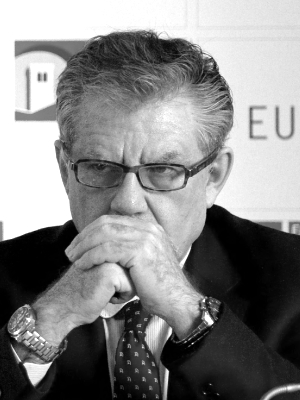
J.H.H. Weiler is University Professor at NYU Law School and Senior Fellow at the Center for European Studies at Harvard. He served previously as President of the European University Institute, Florence. Prof. Weiler is Co-Editor-in-Chief of the European Journal of International Law (EJIL) and the International Journal of Constitutional Law (ICON).
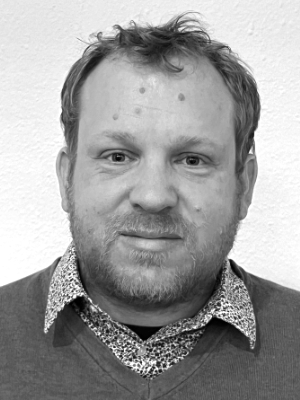
Tim Wihl has been an Acting Professor of Public Law and Modern Legal History at the University of Erfurt since April 2022. Previously, he was a Visiting Professor at Humboldt-Universität zu Berlin for Political Theory, Constitutional Theory, and Legal References of Politics since 2020. From 2009 to 2018, he was a junior reseach fellow at the Faculty of Law of Humboldt-Universität zu Berlin at the Chair of Public Law, in particular Constitutional Law, and Philosophy of Law with Prof. Dr. Christoph Möllers.
Publications:
Aufhebungsrechte (Sublation Rights), 2019
Gesamtverfassung (ed., with Isabel Feichtner), 2022
Schedule
Public Evening Debates:
Keynote lecture: 25-30 minutes
Two comments: 10 minutes each
Discussion: 40 minutes
Panels I-III:
Kick-offs: 10 minutes each
Discussion: 60 minutes
Wednesday, May 31, 2023
| 4:00 pm | Welcome Reception & Introduction Isabel Feichtner (University of Würzburg), Alexandra Kemmerer (MPIL Heidelberg), Stephan Steiner (Katholische Akademie) |
| 5:30 pm | Coffee break |
| 6:00 pm | Public Evening Debate The Commonsverse as a Parallel Polis: Opportunities and Challenges David Bollier (Schumacher Center) Comments: Edmund Waldstein OCist (Heiligenkreuz) & Teresa Forcades i Vila OSB (Montserrat) Chair: Isabel Feichtner (University of Würzburg) Livestream on Youtube |
| 8:00 pm | Joint dinner for the conference participants |
Thursday, June 1, 2023
| 8:45 am | Morning Prayer at the Chapel Saint Thomas Aquinas |
| 9:15 am | Panel I: Communio Kick-off: Christine Büchner (University of Würzburg) & Bettina Barthel (TU Berlin) |
| 10:45 am | Coffee break |
| 11:15 am | Kick-off: Daniel Bogner (University of Fribourg) & Asher Biemann (University of Virginia) |
| 12:45 am | Lunch |
| 2:00 pm | Panel II: Labor Kick-off: Elise Kissling (Speyer) & Madhulika Banerjee (University of Delhi / THE NEW INSTITUTE) |
| 3:30 pm | Coffee break |
| 4:00 pm | Kick-off: Margot Salomon (London School of Economics) & Michelle Becka (University of Würzburg) |
| 6:00 pm | Supper |
| 7:00 pm | Public Evening Debate Non Nova, Sed Nove: The Common Good in Constitutional Law Adrian Vermeule (Harvard University) Comments: Corine Pelluchon (Université Gustave Eiffel) & Joseph Weiler (New York University) Chair: Alexandra Kemmerer (MPIL Heidelberg) Livestream on Youtube |
Friday, June 2, 2023
| 8:45 am | Morning Prayer at the Chapel Saint Thomas Aquinas |
| 9:15 am | Panel III: Constitutio Kick-off: Monica Garcia Salmones (University of Pamplona) & Alex Ozar (Yale University) |
| 10:15 pm | Coffee break |
| 10:30 pm | Kick-off: Sabine Hark (TU Berlin) & Tim Wihl (University of Erfurt) |
| 11:30 am | Coffee break |
| 11:45 am | Round Table Debate Comments: Bruno Godefroy (University of Lyon) & Louis Berger (IfP Catholic School of Journalism München) |
| 1:00 pm | Lunch & farewell |






